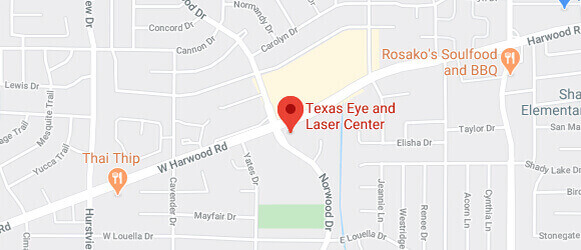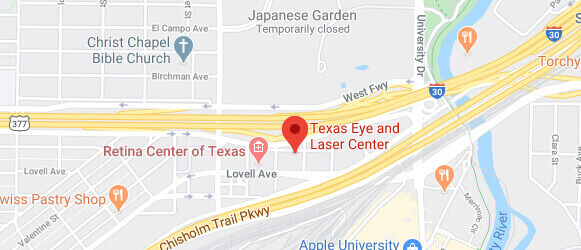June is Cataract Awareness Month. The American Academy of Ophthalmology challenges eye professionals across the U.S. to educate their patients on cataracts, cataract symptoms, and options to remove cataracts. We are taking it one step further by offering FREE cataract screenings to new patients through June! What does a cataract screening entail? Read on to improve your Cataract Awareness!

What is a cataract?
A cataract is the clouding of the natural lens that occurs over a lifetime. They are incredibly common and nearly everyone develops a cataract at some point! Although the average age of patients undergoing cataract surgery is 72 years, cataracts can develop much earlier due to family history or even certain medications.
What are the symptoms of a cataract?
If you have experienced a decline in your vision, difficulty with nighttime driving, or significant dulling of colors, you could have a cataract. Other common symptoms include difficulty reading, halos around lights, and blurred, doubled vision, loss of depth perception, or frequent change of glasses.
What is a Cataract Screening?
A cataract screening at Texas Eye and Laser Center is an exam by an optometrist at any of our locations. It consists of a visual acuity check (how well you can see) and a look at your natural lens to see if you have a cataract. Your eyes will not be dilated, as this screening is only to determine whether you have a cataract. We will grade the clarity of your lens on a scale of 1-4. The doctor may also check your vision with a special light that simulates glare while driving at night. Taking these measurements into consideration, we will determine if you need to see a surgeon for a complete cataract evaluation.
Are there different types of cataracts?
There are three primary types of cataracts, and each individual lens could have some level of each! The three types of cataract are:
- Nuclear Sclerotic Cataracts: These are the most common type of age-related cataracts. They are caused primarily by yellowing and hardening of the lens over time.
- Cortical Cataracts: These are cloudy areas or “spokes” in the lens that develop in the cortex of the lens. People with diabetes are at risk of developing cataracts.
- Posterior Subcapsular Cataracts: This type of cataract forms along the back surface of the lens. This is sometimes called a “young man’s cataract” because it can affect people much younger than is typical. They can develop rapidly, with symptoms becoming noticeable within months.
Our doctor will assign a grade to each type of cataract in your lens. Along with your visual acuity, the optometrist will determine whether you should see a surgeon to have the cataract removed.
How advanced should a cataract be to see a surgeon?
Our optometrist will refer you to an ophthalmologist for a cataract evaluation once a cataract is advanced enough to interfere with your visual acuity. Your vision must be correctable to 20/40 to maintain a Texas driver’s license. As a result, doctors often use this as an indicator of the need for a full cataract evaluation. However, if the decline in your vision is severe enough to interfere with your day-to-day life, you should consider seeing us for an evaluation.
Do cataracts always happen in both eyes at the same time?
Nope! Every eye is unique, even in the same person. In fact, one eye can develop a cataract years before the other eye!
What is a cataract evaluation?
A cataract evaluation is a thorough exam that occurs after your eye professional determines that you have a cataract and that cataract is causing a decline in your visual acuity. The evaluation consists of a variety of tests to determine whether your eye is healthy enough for cataract replacement surgery as well as what type of lens replacement will best suit your lifestyle.
What if my cataracts aren’t advanced enough to see a surgeon?
The clouding of the natural lens begins as early as the teen years! Family history, sun exposure, chronic health issues, and other factors all play a role in how quickly the lens begins to cloud. If your lens is clear and your vision doesn’t keep you from your daily activities, congratulations! Continue with your annual dilated eye exams and keep up your Cataract Awareness!
Ready to get your FREE cataract screening scheduled? Call (817) 768-6620 today!



